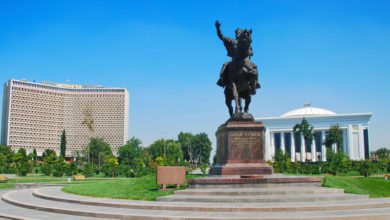Partners from Central Asia and Afghanistan discuss transboundary water resource management

The United States Agency for International Development’s (USAID) Smart Waters project on January 22 convened water sector national partners from five Central Asian countries and Afghanistan for the eighth Regional Steering Committee for water coordination in Burabay, Kazakhstan. The meeting facilitated the exchange of information and ideas among participating countries and the sharing of national best practices at a regional level, the US Embassy in Kazakhstan said.
The project’s Regional Steering Committee on water, which meets twice a year and rotates among the Central Asian countries, consists of national partner organizations – ministries of foreign affairs, water resources, environmental protection and academia from participating countries. By proactively taking shared responsibility and ownership, the countries are partners in the U.S. government’s efforts to connect the region through transboundary water management.
In his opening remarks, Christopher Edwards, USAID Regional Mission Director for Central Asia, said, “At USAID, we believe in a holistic approach to managing water resources by looking at ecosystems, land, and water as one interlinked system. We encourage a participatory approach at all levels, from planners and policy makers to local communities themselves through public consultation and recognizing women’s role in finding solutions to water issues.” The steering committee meeting resulted in clear plans for project implementation over the coming year, as well as preliminary discussions about formalizing coordination on the regional level.
Smart Waters is a five-year project designed to help the five Central Asian countries and Afghanistan deepen their technical skills in the water sector as well as facilitate peer relationships of water experts and managers at various levels. The project aims at building a cadre of professionals who are capable of managing shared water resources to maximize the economic value of water equitably over the long term in the face of climate change and other pressures, understand the value of such practices, and trust each other. The USAID-funded Smart Waters project is implemented by the Central Asian Regional Environmental Center.
Source: Times of Central Asia





